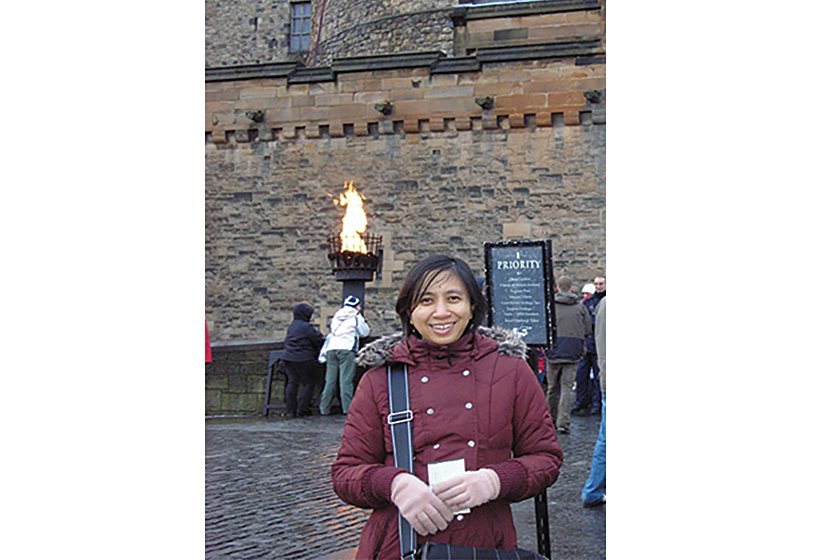Dr Jeanne Rini Peospoprodjo, paediatrician and Mother and Child Health Program consultant at the District Health Authority in Mimika, Papua, has dedicated more than 20 years of her medical career to fighting malaria for mothers and children in the region.
Most recently, in collaboration with the Liverpool School of Tropical Medicine (UK), Dr Rini and her team at the Timika Research Facility looked into the efficacy of three different methods of malaria interventions for pregnant women to prevent adverse maternal and infant health outcomes.
Dr Rini is now carrying out an implementation study to strengthen the health system in delivering an effective malaria treatment. The study is supported by the Indo-Pacific Centre for Health Security at the Australian Department of Foreign Affairs and Trade through the Menzies School of Health Research, Charles Darwin University.
Back in 1991, when Dr Rini first worked as a general practitioner at a remote community health centre in Merauke, Papua, she handled infectious disease cases ranging from pneumonia, diarrhea, to malaria.
Malaria caught her attention due to its impact on mothers and babies. Malaria infection during pregnancy poses serious health risks to the mother and the foetus. Expectant mothers can suffer from anemia, which can result in a birth weight of less than 2,500 grams, and a high risk of infant mortality during the first year of life. If the babies survive, they run the risk of developing future health complications.
According to Dr Rini, when she started working in Papua there were very few evidence-based programs. Programs that existed were adopted from other places or even foreign countries such as Africa. Upon becoming a pediatrician in 1999, Dr Rini focused on malaria research.
The Global Health Division at the Menzies School of Health Research had been collaborating with the Indonesian National Institute of Health Research and Development on various health programmes and in 2002, Dr Rini joined the research team as the local clinical director of research at the Timika Research Facility.
She set up a prospective surveillance system of pregnant women and babies admitted to the local hospital. Within three years, over 4000 women were enrolled in the study and analysis revealed a huge burden of malaria with adverse outcomes in both mother and child.
In 2005, Dr Rini was awarded the Chevening Fellowship to undertake a Master of Science at the Institute of Child Health in the United Kingdom. Determined to eradicate malaria, in 2011 Dr Rini went on to obtain her PhD in Medical Science from Charles Darwin University’s Menzies School of Health Research under the Australian Government funded Australia Awards Scholarships. Her demonstrated dedication earned her the prestigious Allison Sudradjat Prize.
“In Australia I met many experts on tropical diseases and developed contacts with experts from other universities in the United States, Britain and other European countries,” Dr Rini said. In fact, she established her contacts with the Liverpool School of Tropical Medicine during her studies at Menzies School of Health Research.
The collaborative research between the Timika Research Facility and the Liverpool School of Tropical Medicine has found a particular anti-malaria medication taken once a month to be effective in preventing malaria for expectant mothers. The clinical trial concluded in 2016 and the findings have been published in the Lancet Infectious Diseases journal in 2019.
Dr Rini has received various awards for her work on malaria, among them an award from Indonesia’s Vice President for her outstanding contributions to malaria research in 2010, and an award from the Australia Indonesia Association for humanitarian work in 2016.
Over the years, Dr Rini has also served as a consultant and advisor for programs under UNICEF and the World Health Organization. She continues to advise the Indonesian government on mother and child health.
“My goal is to be able to improve government policies on dealing with malaria and promote a good relationship between Indonesian and foreign researchers. If we can manage the burden of malaria, its impact, and its treatment, there are so many of malaria’s effects that we can avoid,” said Dr Rini.
“I want to be part of the solution to the problem of malaria in Indonesia, especially in Papua.”


 Dr Jeanne Rini Peospoprodjo: Fighting malaria for mothers and children through research
Dr Jeanne Rini Peospoprodjo: Fighting malaria for mothers and children through research
